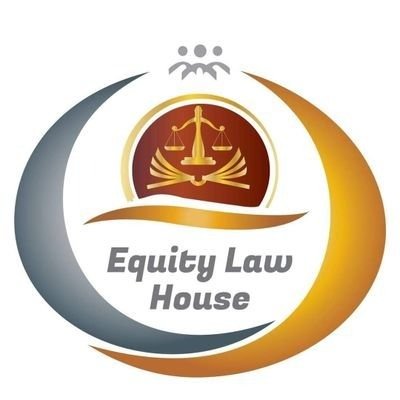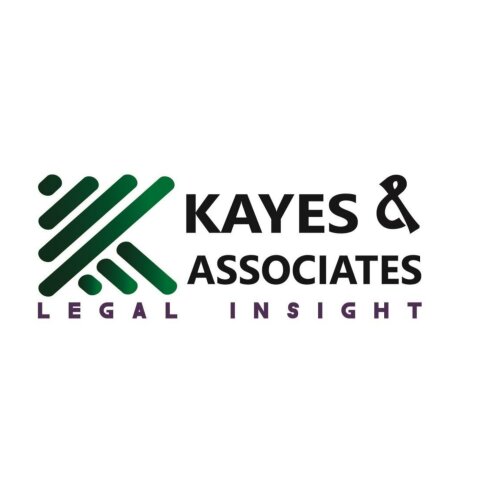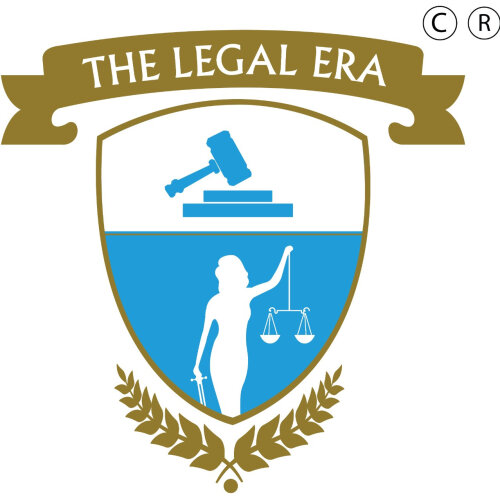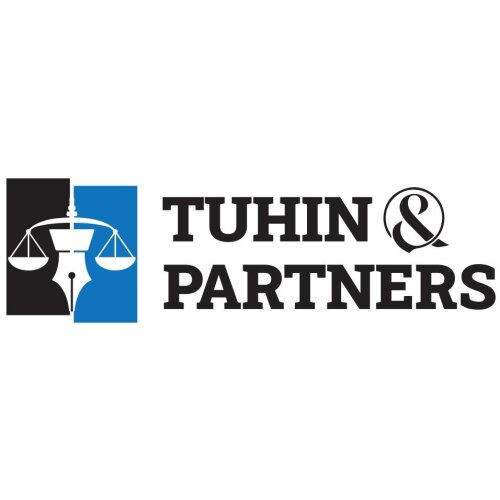Best Real Estate Due Diligence Lawyers in Dhaka
Share your needs with us, get contacted by law firms.
Free. Takes 2 min.
Free Guide to Hiring a Real Estate Lawyer
List of the best lawyers in Dhaka, Bangladesh
About Real Estate Due Diligence Law in Dhaka, Bangladesh
Real estate due diligence in Dhaka, Bangladesh, is a crucial process for anyone looking to buy, sell, or invest in property. Due diligence involves a thorough investigation of all aspects of a real estate transaction to ensure that everything is as it appears. This typically includes verifying the title of the property, checking for any encumbrances or liens, confirming compliance with zoning laws, and ensuring that the property has the necessary legal documentation. The process aims to protect all parties involved in the transaction and prevent future legal disputes.
Why You May Need a Lawyer
Engaging a lawyer for real estate due diligence in Dhaka can be beneficial in several situations. A lawyer can help navigate the often complex legal frameworks and provide insights on the necessary documentation to verify property ownership. Common scenarios include:
- Ensuring that the property title is clear of any encumbrances or disputes.
- Negotiating terms in sale agreements to protect client interests.
- Verifying compliance with local zoning and land use regulations.
- Conducting checks on potential liabilities associated with the property.
- Handling transactions involving large-scale commercial properties or mixed-use developments.
- Assisting in risk assessment for real estate investments.
Local Laws Overview
The real estate market in Dhaka is governed by several laws and regulations, which are essential in conducting due diligence. Key legal aspects include:
- Transfer of Property Act, 1882: Outlines the legal guidelines for property transactions.
- Registration Act, 1908: Requires the registration of certain real estate documents to ensure legal recognition and ownership.
- State Acquisition and Tenancy Act, 1950: Governs land tenure and tenancy rights, crucial for properties with agricultural background.
- Building Construction Act, 1952: Sets out construction standards and regulations, vital for developments.
- Municipal Development Authorities: Zoning and land use regulations often enforced by local development bodies.
Frequently Asked Questions
What does real estate due diligence involve?
Real estate due diligence involves verifying the legal status and rightful ownership of a property, checking for any liens, understanding zoning restrictions, and evaluating the property's structural and environmental condition.
How long does the due diligence process typically take in Dhaka?
The due diligence process can vary in length, typically taking from a few weeks to several months, depending on the complexity of the transaction and thoroughness of the investigation.
Are real estate lawyers necessary for property verification?
While not mandatory, involving a lawyer is recommended due to their expertise in navigating local property laws and identifying potential legal pitfalls.
What are the common risks identified during due diligence?
Common risks include ownership disputes, undisclosed encumbrances, non-compliance with local regulations, and pending litigation on the property.
How much does legal assistance for due diligence cost?
The cost for legal assistance can vary widely based on the property's complexity and the lawyer's experience. It's advisable to discuss fees upfront to avoid misunderstandings.
Can I perform due diligence myself?
Yes, basic checks can be performed independently, but legal documents' complexities usually necessitate professional legal aid to ensure thorough verification.
What documents are essential for real estate due diligence?
Key documents include title deeds, tax receipts, planning permissions, ownership history, and any encumbrance certificates.
What should I do if discrepancies are found during due diligence?
If discrepancies arise, it's crucial to consult with legal professionals who can offer guidance on the best course of action, which may include renegotiation or withdrawal from the transaction.
How do zoning laws affect property transactions?
Zoning laws dictate how land can be used. Non-compliance can lead to legal issues, making it essential to ensure that the property is zoned appropriately for its intended use.
What legal recourse is available if a transaction goes wrong?
If a transaction encounters issues, legal recourse includes filing claims for breach of contract, seeking arbitration or mediation, or, in severe cases, pursuing lawsuits.
Additional Resources
Consider reaching out to the following resources for further guidance on real estate due diligence in Dhaka:
- Ministry of Land: Provides information on land records and title verification.
- Rajdhani Unnayan Kartripakkha (RAJUK): The authority responsible for permitting and overseeing new developments in Dhaka.
- Bangladesh Bar Council: Offers resources and directories of certified legal professionals.
- Local property registrars: For obtaining certified copies of property records.
Next Steps
If you find yourself in need of legal assistance with real estate due diligence in Dhaka, consider the following steps:
- Consult a lawyer: Reach out to legal professionals specializing in real estate to get advice tailored to your specific needs.
- Gather all relevant documents: Make sure you have all necessary property documents ready for review.
- Conduct preliminary checks: Begin with basic verifications you can do independently, while waiting for professional guidance.
- Engage with local authorities: Liaise with governmental bodies to ensure compliance with local regulations.
Remember, thorough preparation and professional guidance can significantly mitigate risks in real estate transactions.
Lawzana helps you find the best lawyers and law firms in Dhaka through a curated and pre-screened list of qualified legal professionals. Our platform offers rankings and detailed profiles of attorneys and law firms, allowing you to compare based on practice areas, including Real Estate Due Diligence, experience, and client feedback.
Each profile includes a description of the firm's areas of practice, client reviews, team members and partners, year of establishment, spoken languages, office locations, contact information, social media presence, and any published articles or resources. Most firms on our platform speak English and are experienced in both local and international legal matters.
Get a quote from top-rated law firms in Dhaka, Bangladesh — quickly, securely, and without unnecessary hassle.
Disclaimer:
The information provided on this page is for general informational purposes only and does not constitute legal advice. While we strive to ensure the accuracy and relevance of the content, legal information may change over time, and interpretations of the law can vary. You should always consult with a qualified legal professional for advice specific to your situation.
We disclaim all liability for actions taken or not taken based on the content of this page. If you believe any information is incorrect or outdated, please contact us, and we will review and update it where appropriate.
















